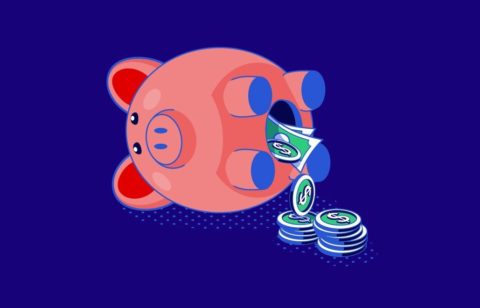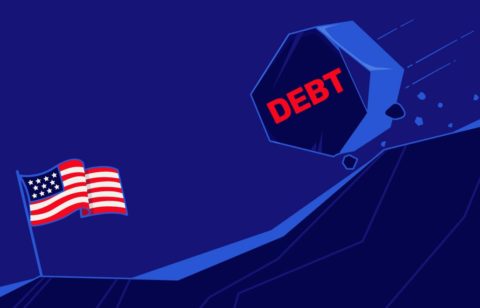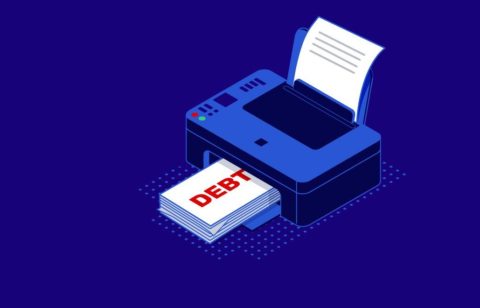Will you be in debt when you die? The sad fact is that it happens to many Americans. According to Experian’s File One Database, 73% of American consumers had debt outstanding upon their death. These people had an average total debt of $61,554, including mortgage debt. After subtracting their home loans, they still had an average balance of $12,875.
How much debt do you have? Those Americans with credit card debt owe an average of more than $16,000. If you have this much credit card debt or more, along with a bunch of other unsecured debts, you’re probably asking yourself what you can do to get things under control. There’s a lot of information available on the Internet that could help. Search the term “debt relief” and you’ll get over 400,000 results. The problem is that many of these resources don’t address the problem. Some are just thinly disguised advertisements, and still others are the work of those trying to deceive.
National Debt Relief is ranked #1 for debt consolidation programs by Top Consumer Reviews and has a five-star rating on the review site known as TrustPilot. It’s Better Business Bureau accredited with an A+ rating and is a member of the American Fair Credit Council.
One of the best options for dealing with debt is a debt consolidation loan. National Debt Relief’s blog offers a number of good articles on this subject. Here is a synopsis of NDR’s top 10 articles on debt consolidation loans, with links to the complete articles. Read these articles to learn all about debt consolidation loans before choosing this option.
1. Debt Consolidation Loans and Why They Are Appealing
Many people turn to debt consolidation to get their debts under control. If this option appeals to you, learn about the two types of these loans. One is an unsecured loan, such as a personal loan, and the second is a secured loan, such as a homeowner equity line of credit (HELOC) or a home equity loan. This article explains several of the reasons why debt consolidation loans are popular, including the fact that they replace multiple payments with just one, and that they have a fixed term. A third important benefit of a debt consolidation loan is that you would have more disposable income because of lower monthly payments. Of course, as this article points out, there are cases where a debt consolidation loan isn’t that appealing. Read the entire article to learn more.
2. Why People Opt For Debt Consolidation Loans
This article provides information about the advantages of debt consolidation loans. One of the most important of these is that it consolidates all unsecured debt payments into just one payment per month, making things easier to manage. It also tackles the disadvantages of debt consolidation loans, such as the fact that things won’t change after you consolidate your debts unless you make some lifestyle changes. It discusses the types of debt consolidation loans, including a personal loan, home equity loan, and home equity line of credit, with the pluses and minuses of each. This article also explains DIY debt management, but why it’s sometimes better to hire a debt settlement company. Be sure to read the entire article to learn everything you can about debt consolidation loans.
3. Six Great Questions About Debt Consolidation Loans
The first question asked by many people interested in getting their debts under control is, “What is debt consolidation?” This article answers this question and others, including whether a debt consolidation loan will save you money in the long term and if your monthly payments will be lower. The final question you’ll find answered is what you can do with the extra money you’ll have. One good answer is to use the money to create an emergency fund. However, the biggest benefit of consolidating your debts is probably the relief you’ll feel knowing that it’s now under control. Read the article to learn the complete answers to these six great questions about debt consolidation.
4. Step By Step Guide To Debt Consolidation Loans
If you think a debt consolidation loan is your best option for becoming debt-free, this guide can help you get there. The guide’s first step is to learn where your money is going, and then reduce your spending. Step three is to reduce your spending to help pay down your debt. As this article points out, there may be reasons to say “no” to debt consolidation loans, as they can actually cost more because it will take longer to pay them back versus paying off other types of debts. Finally, you’ll learn that, for many people, a better alternative exists. Click here to learn what that alternative is, and why it could be your best option.
5. The Pros And Cons Of A Debt Consolidation Loan
There’s hardly a financial decision that doesn’t have both its upsides and downsides. While a debt consolidation loan might seem like a lifesaver if you’re seriously in debt, it’s important to understand its pros and cons. As this article reports, one of its biggest pros is that, once you consolidate your debts, you’ll have just one payment, which will mean less stress each month. Second, a debt consolidation loan can save you money over the long term by reducing the overall amount of interest you pay on the debt. On the con side, it can be hard to get a low-interest debt consolidation loan if you have bad credit. You may have to get a secured loan, which can be riskier as you will be required to put up some form of collateral, such as your house, to get the loan. You could end up in worse shape than before if you can’t change your spending habits. Read the entire article to learn more about the pros and cons of a consolidation loan.
6. Five Things Your Banker May Not Tell You About Debt Consolidation Loans
If you’re having a problem with debt, a consolidation loan can seem like a good solution. However, be aware of some things that your banker may not share with you about them. For one thing, bankers are not fools. If you’re deep in debt, you may not be able to get one of these loans. A second thing a banker might not tell you is that the only kind of loan you’ll be able to get is a secured loan on your house, which can take seven to 10 years to repay. As this article reports, a debt consolidation loan could cost you more due to its longer term and that, finally, you should stay away from adjustable-rate mortgages. Why is this true? Read the article to learn the full list of things your banker may not tell you about debt consolidation loans.
7. How Are Debt Consolidation Loans Handled In Bankruptcy?
This article first provides detailed information about what a debt consolidation loan is and why many people get one. It answers the question of how debt consolidation loans are handled during a bankruptcy. You’ll discover the differences between a chapter 7 and a chapter 13 bankruptcy, and the things you should know about the bankruptcy process itself. We reveal why you’ll need the help of a lawyer who understands the bankruptcy process. If you choose not to hire a bankruptcy attorney, you could have some of your debt considered “bad faith.” What is “bad faith” debt, and how could it harm you? Click here to learn the answer to this question.
8. Debt Consolidation Loans For Those With Bad Credit: Frequently Asked Questions
This article answers questions frequently asked by those with bad credit about debt consolidation loans. For example, is a consolidation loan the ideal option for debt relief? A second important question you’ll find answered is whether debt consolidation agreements are the same as loans to consolidate bills. One alternative to a debt consolidation loan is a debt management plan. However, what does one look like, and how long does it take to complete one? While all your unsecured debts may be included in your debt management plan, there may be cases where you won’t want to include all of them. Will your lenders close all your accounts when you’re in a debt management program? Can you get new lines of credit while in a debt management program? Read the article to learn the answers to these questions and more.
9. Best And Worst Case Scenario When Using Debt Consolidation Loans
Using a debt consolidation loan to get out of debt is a common practice. This article warns you to be careful when choosing a debt consolidation loan. Some things that are important to know include the loan’s fees, rates, and other financial implications. Of course, the best-case scenario is that you have a high credit score, get a low-interest loan, and get your debt under control. The worst-case scenario is that you just add to your debt, which is what can happen if you have a poor credit score. Finally, this article details some of the things you can do to make sure you end up getting the best plan for your needs. Click here to learn what these things are, and why you’ll need self-control to pull yourself out of debt completely.
10. Just Say ‘No’ To Debt Consolidation Loans
While a debt consolidation loan can be a good option for many people, it is not the ideal choice for everyone in debt. In fact, some financial experts believe that debt consolidation loans are more trouble than they’re worth. This is because they give people the feeling they’ve done something about their debt problem, but they really haven’t. All they’ve done is moved their debt around. The biggest problem with a debt consolidation loan is the danger that your debt will just grow once again as you free up credit. As this article points out, if you can’t handle credit, refuse to make a budget, or fail to save for emergencies, you should definitely say “no” to a debt consolidation loan. Click here to read the article and learn about an alternative to a debt consolidation loan that could be better for you.





